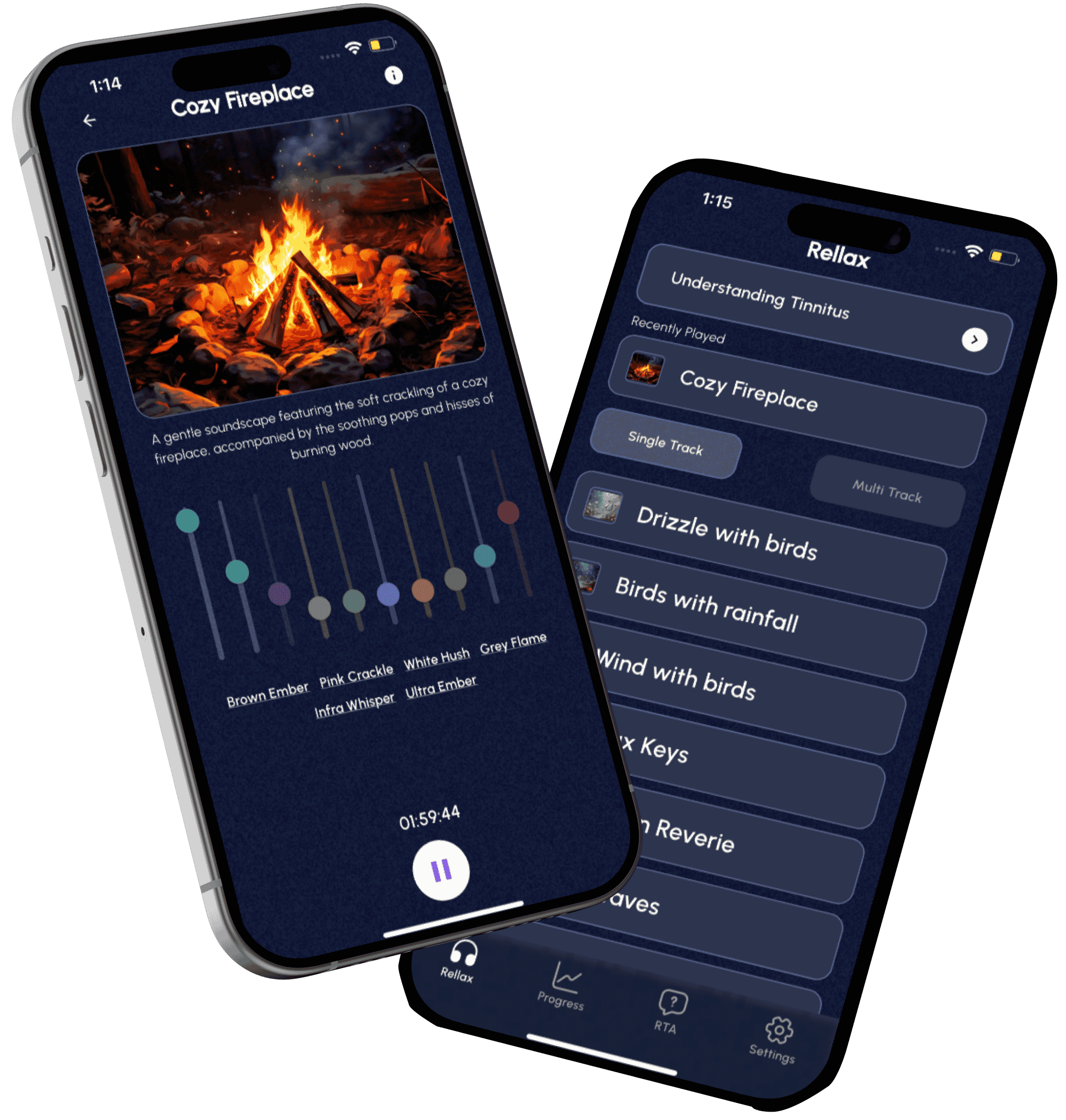
If you’re living with tinnitus, you’re not alone—and there’s a way forward. That constant ringing, buzzing, or clicking in your ears may feel like it’s taken over your life. But the truth is, you can take control. Many people have learned how to stop tinnitus from running their lives through something called habituation—and you can, too.
This guide will help you understand what tinnitus habituation is, how it works, and how to start the journey toward relief.
What Is Tinnitus, and Why Does It Affect You So Much?
Tinnitus is the perception of sound—often ringing, buzzing, or hissing—when there’s no external source. It’s incredibly common and can be caused by things like noise exposure, infections, medication, or aging.
While there’s no medical “cure” for tinnitus, there is a solution: you can train your brain to stop reacting to it. That’s what habituation is all about.
The Problem: Your Brain Thinks Tinnitus Is a Threat
Here’s what’s really happening:
- You hear the tinnitus sound.
- Your brain sees it as a threat.
- You feel anxious, frustrated, or afraid.
- So your brain keeps checking for it, which makes it feel louder and more present.
This cycle is called the tinnitus emotional response loop—and it’s exactly what habituation helps break.
The Transformation: What Habituation Feels Like
As you habituate, things change:
- You notice your tinnitus less because your brain stops scanning for it.
- Even when you do notice it, it bothers you less.
- It begins to fade into the background, just like the sound of a fridge or traffic.
This doesn’t happen overnight—but with the right plan, it happens.
How Long Does Tinnitus Habituation Take?
Everyone’s journey is different. For most people, habituation takes a few months to a year. Some key factors include:
- Your current stress and sleep levels
- Whether you’re actively working toward habituation
- Whether you have support or guidance
Why Tinnitus Feels Worse Some Days
Don’t be discouraged if your tinnitus seems louder or more frustrating at times. That’s totally normal. Here are some common triggers:
- Stress or anxiety
- Poor sleep
- Caffeine, alcohol, or salty foods
- Quiet environments
- Underlying medical issues
Understanding your own patterns helps you take back control.
The Plan: How to Habituate to Tinnitus
Here are proven, evidence-based methods to train your brain and reduce tinnitus-related distress:
Tinnitus Retraining Therapy (TRT)
TRT combines sound therapy with counseling to help your brain reclassify tinnitus as a neutral sound. Over time, your nervous system stops reacting to it. TRT works best when:
- You’re exposed to consistent low-level sound (not silence)
You receive expert guidance to reshape your response
Cognitive Behavioral Therapy (CBT)
CBT helps you identify and shift unhelpful thoughts about tinnitus. You’ll learn to:
- Challenge fearful thinking
- Break the emotional response loop
- Reframe how your brain perceives the sound
Acceptance and Commitment Therapy (ACT)
ACT teaches you to accept the presence of tinnitus without letting it control your actions. You’ll:
- Focus on what matters to you in life
- Reduce resistance to tinnitus
- Find more emotional flexibility
Mindfulness and Meditation
Mindfulness builds awareness and acceptance of tinnitus without judgment. You’ll practice:
- Breathing exercises
- Body scans
- Present-moment awareness
These techniques reduce the emotional burden and promote relaxation.
Practical Tips to Support Habituation
- Avoid silence: Use calming background sounds or white noise.
- Stay active: Exercise boosts mood and resilience.
- Get quality sleep: Build good sleep routines.
- Connect with others: Support groups and stories from those who’ve habituated can inspire hope.
What to Avoid
To move forward, steer clear of these common traps:
- Trying to ignore tinnitus: This increases focus on it.
- Relying on miracle cures: Most supplements or medications lack evidence.
- Isolating yourself: Social connection helps.
- Blocking all sound with earplugs: This can cause hyperacusis.
- Checking your tinnitus constantly: It trains your brain to stay alert to it.
The Guide: You Don’t Have to Do This Alone
You’re the hero of your story—and we’re here to guide you.
At Rellax, we offer two paths to help you habituate:
Expert 1-on-1 Program
- Work with a TRT implementor directly.
- Build a custom plan based on your unique experience.
- Use our mobile app to reinforce what you learn.
Includes: Regular sessions, unlimited expert support, and a clear plan forward.
Digital-Only Program
- Use the Rellax app for a self-guided audio program.
- Access TRT content, TinniTips, relaxation techniques, and pleasant sounscapes.
Perfect for those just getting started or looking for affordable support.
You Can Take Back Control
You don’t have to suffer endlessly. Tinnitus habituation is real, and it’s absolutely possible for you. With the right tools and support, you can get your life back.
Let Rellax help guide you there.
Have any question?
Do not hesitate to contact us. We’re a team of experts ready to talk to you.


